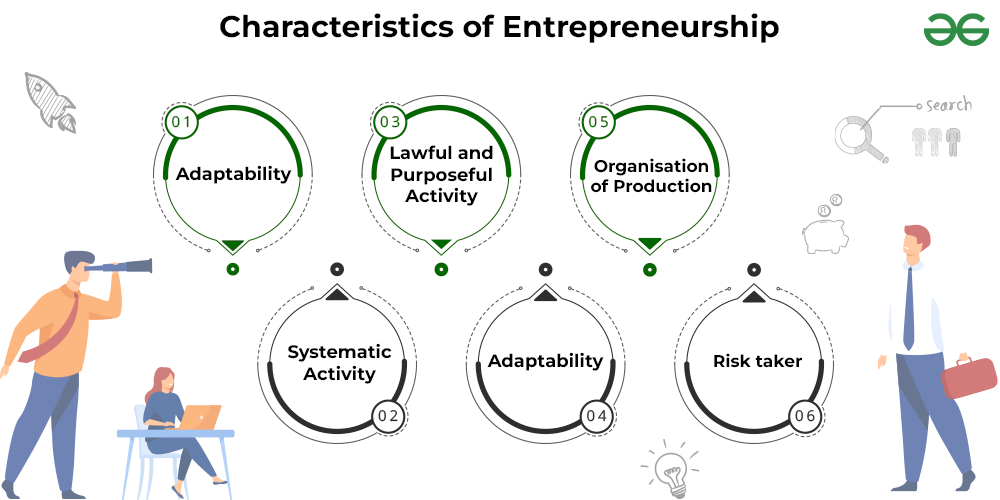Entrepreneurialism is not just a buzzword; it’s a transformative force reshaping how we approach work, especially within American work culture. The rise of freelance work and self-employment trends has fostered a generation that thrives on the entrepreneurial spirit, empowering individuals to make their own job rather than waiting for opportunities to arise. From solopreneurs launching innovative startups to workers redefining their roles in established companies, the essence of entrepreneurialism is evident everywhere. This shift reflects a broader societal change, with the traditional notion of job security giving way to a more dynamic, self-directed approach to work. By examining the ideals of entrepreneurialism, we can better understand the evolving landscape of employment and the challenges it brings to individuals striving for success.
The concept of self-employment forms the backbone of a new work philosophy that resonates with many in today’s society. Various terms, such as being a solopreneur or embracing freelance work, capture a move towards autonomy and the desire to forge one’s own path. This ideological shift highlights a significant evolution in job creation, where individuals take the initiative to craft their careers amidst changing economic landscapes. With the rising trends of self-employment, the ability to define oneself as a business or brand is transforming our perceptions of value and success in professional realms. Embracing this entrepreneurial mindset not only inspires innovation but also cultivates resilience in an unpredictable job market.
The Rise of Entrepreneurialism in American Work Culture
The evolution of entrepreneurialism has profoundly transformed the American work culture, especially in the wake of economic challenges. From the end of the 19th century, as technological advancements began displacing traditional manufacturing jobs, individuals started searching for alternatives. This shift marked a transition from a collective mindset of stable employment towards a more individualistic approach, encapsulated in the idea of ‘making your own job’. As Baker discusses, this new entrepreneurial spirit wasn’t just about starting businesses but encompassed various forms of self-employment, from freelance work to gig-based opportunities, which have become increasingly vital in today’s economy.
Today, this entrepreneurial mindset is evident in the rise of various job roles that defy traditional employment categories. With the advent of technology and platforms that support freelance work, individuals can monetize their skills without the constraints of a conventional job. This self-employment trend reflects a cultural shift where work is redefined as a personal pursuit rather than merely a means to earn a living. As more Americans embrace this entrepreneurial approach, the lines blur between professions, and even leisure activities can become avenues for income generation, weaving entrepreneurialism deeper into the fabric of work culture.
Frequently Asked Questions
What is entrepreneurialism and how does it relate to freelance work?
Entrepreneurialism is the mindset and practice of creating new ventures and embracing the risks associated with self-employment. In the context of freelance work, it embodies the spirit of independence and self-reliance, allowing individuals to make their own job by leveraging their unique skills and talents.
How has the American work culture adapted to promote an entrepreneurial spirit?
American work culture has increasingly embraced an entrepreneurial spirit by encouraging innovation, creativity, and flexibility. This shift allows individuals to take initiative in their careers, whether as traditional entrepreneurs or through freelance work, thus making their own jobs and contributing to economic diversity.
What are some current self-employment trends connected to entrepreneurialism?
Self-employment trends currently reflect a growing preference for freelance work, gig jobs, and flexible employment arrangements. These trends highlight the entrepreneurial spirit, allowing people to choose varied income sources, cultivate creativity, and achieve work-life balance while navigating the modern economy.
How does the concept of making your own job tie into self-employment?
The concept of ‘making your own job’ emphasizes the independence characteristic of self-employment. It encourages individuals to identify and create opportunities based on their skills and passions, thus fostering an entrepreneurial spirit that promotes personal fulfillment and financial security.
What impact does entrepreneurialism have on the workforce, especially during economic changes?
During economic fluctuations, entrepreneurialism often leads to increased innovation and adaptability within the workforce. It encourages individuals to pivot towards self-employment or freelance work, thus redefining traditional job structures while also responding to shifts in job availability and workforce demands.
| Key Points |
|---|
| Erik Baker explores how entrepreneurialism has changed Americans’ relationship with work. |
| Entrepreneurs include business founders, managers, ride-share drivers, influencers, and solopreneurs. |
| The concept of entrepreneurialism rose significantly following the decline of traditional manufacturing jobs in the early 20th century. |
| The shift from a hardworking ethic to an entrepreneurial mindset is linked to personal transcendence and continuous ambition. |
| Historical influences, including self-help literature, played a significant role in shaping the entrepreneurial mindset. |
| Changes in social dynamics and economic pressures have continuously inspired individuals to see themselves as entrepreneurs. |
Summary
Entrepreneurialism is a defining feature of modern work culture, reflecting a shift in how individuals perceive their roles and careers. The insights from Erik Baker’s “Make Your Own Job” illustrate that as economic landscapes change, so too do our motivations and identities as workers. The desire for self-fulfillment and the need to adapt to new realities have led more people to embrace entrepreneurial principles, seeing opportunities even amid challenges. The popularity and complexity of entrepreneurialism highlight its impact on personal and professional relationships, coupled with an increasing sense of anxiety regarding job security and future prospects.


